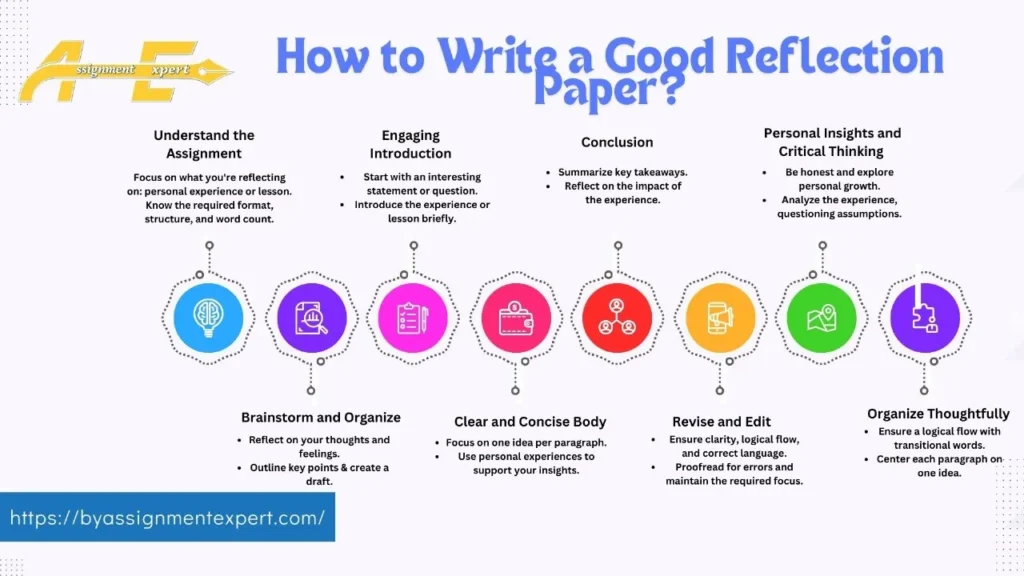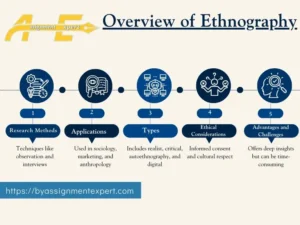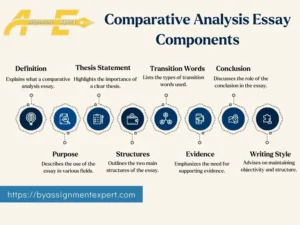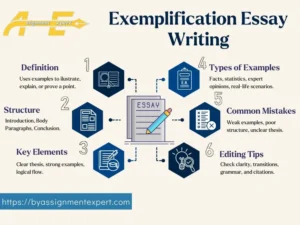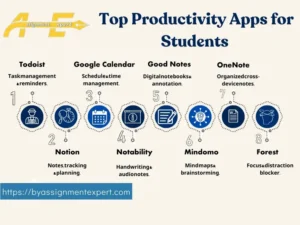A reflection paper is among the key academic skills. It helps a student to extract specific thoughts and explore learning. Whether at college or university, the skill to write a good reflection paper has some big impact on your academic journey.
This blog guides you through the technique and helps you to perceive how to write a good reflection paper. It gives you a clear guideline on the material, examples, and tips you may need to look for to come at the getting of an excellent reflection paper assignment.
Structure of a Reflection Paper
A reflection paper includes three basic parts: an introduction, body, and conclusion. To write these parts more effectively learn about writing a reflection paper assignments. Each of these parts must play a basic role in the structuring of the paper in regard to the format and presentation of the paper.
Introduction
An introduction is the part you use to present your reflection. It shall find the invitation to the experience or lesson on which you will report what to expect in this paper. Key components do include:
- Start with a statement or question that takes the reader’s attention.
- Quickly explain the experience, lesson, or reading you’ll be considering.
- Preview the main insights or points you’ll discuss in the paper.
Body Paragraphs
The body structure you put forth is highly important. The body needs to be structured into solo, shows, well-organized sections, or paragraphs. Each paragraph shall bear on only one idea or aspect of the reflection. Key ingredients of the body section need to include:
- Showcase what you feel and think towards the experience or lesson.
- Always use your life or experience as an example to back up any insight you list.
- Questioning beliefs, exploration of viewpoints and understanding deeper meanings.
Conclusion
This is where you should bring it all together. You should highlight the key insights one gained and meditate on the broader outcome brought about by the experience or lesson learnt.
Writing Perfect Reflection Paper: Step by step Guide
Creating the best of reflection papers needs a combination of personal insight, critical thinking, and an organized approach. Here is a step-by-step guide which helps you to write a reflection paper. It meets your academic standards and vibrates with your personal experiences.
Assignment Requirements
Understanding the assignments is very important. Depending on the context of the specific paper, different reflection papers may focus on personal experiences, a specific lesson, reading, etc. Be sure that you understand exactly what your professor is asking. i.e.
- Focus: What is the focus? Are you reflecting on a personal experience, a particular event, or a lesson learned from a course?
- The format: Does your reflection paper need to follow an actual structure or style?
- The length: How many words or pages are necessary? A perfect length is 500-1000 words.
By knowing these perspectives, you will be able to develop a plan, which will allow you to be realistic.
Brainstorm and Organize Thoughts
Brainstorming is very important. You are allowed to study your feelings and thoughts about an experience in the lesson. To begin with, make sure you answer to the following queries:
- What is my reaction? You’ll want to write about your effect a lot. On that experience, what were your thoughts when it was going on? Were you happy, crying, curious, or relieved as the experience was happening?
- I learn? Was there something you gained as a lesson or insight from this experience?
- What was it like? Think of how it impacted you in terms of your feelings, mindset, or future events.
Brainstorm about the questions by asking yourself the questions. Take time and brainstorm. This will be useful in organizing your draft to create a rough paper outline.
Read related blog: How to Create a Character Analysis Essay
Create an Engaging Introduction
An introduction in the reflection paper creates the argument for your readers. It should create interest in the paper and give a clear inkling of what the reflection would be about. To make your introduction capture the reader’s interest, follow these tips:
- Start with a statement or question that leads to interesting reading.
- Introduce the experience, lesson, or reading you will be reflecting upon in a few words.
- provide your readers with a hint of what you are going to talk about in the paper.
An introduction that is properly done is what helps you to grab the attention of readers. It will educate them on what to expect in your reflection paper.
Clear Body and Brief Language
The body of your reflection paper is your platform to elaborate on your thoughts and analysis. Do not make your writing complex but keep it clear and concise as much as possible. Here is the structure:
- Each paragraph should present to the reader only one idea or support one point in your reflection.
- To help keep your work organized and flowing smoothly, these will aid.
- Avoid using long and complicated sentences.
- You may like writing all the ideas in clear, small, and precise sentences.
- Think and talk about the experience or lesson using your personal reaction and thoughts.
- Using examples from your experience to support your insights makes your reflection more concrete and practical.
- Taking personal experiences towards larger themes or concepts from your course or educational area.
- Shows that you are deep into critical thinking and relating ideas.
Conclusion
Conclude with the last point of your reflection. Try to wrap together all your ideas. Here are some tips to follow:
- Repeat, briefly, the most important ideas that your reflection generated.
- Reflect on how the experience or learning has impacted your overall perspective or future actions.
- End with a statement that supports further reflection.
Revise and Edit for Clarity
Now that you’ve written the reflection paper, time to revise and edit. In this sense, you should pay attention to doing the abuse:
- Checking that your writing is clear and easy to understand is very important in the checking part.
- Get rid of fake complicated language.
- Your ideas should be logically ordered.
- After reading the paper proofread to ensure that there is no prospect of spelling, grammar or punctuation errors.
- Ensure it is the right length, includes required formatting, and maintains the required focus.
Example of a Reflection Paper
Sometimes the format and structure of a reflection paper can best be understood with the help of an essay example. Here is an example of a reflection paper which will help you. Use this as the framework for your final work, which should look like the example below.
Topic: Mental Disagreement
Introduction
Have you ever had the feeling of a certain new thing making you start to doubt everything about some other subject? This came close to experience to me when I was expressing my intro to Psychology class. They taught us all about mental disagreement. For one thing, I just could not see how we were going to reduce something we are doing when deep down. Inside we believe it’s something we are against. The more I learned, the more it started applying to me.
Body
One of the most extreme cases of mental disagreement in my life was my decision to stay at a job that I did not like. I guess I would admit to myself on one hand that this job was unrelated to my career plan. On the other hand, I could find a way to see how the money was worth the sacrifice. This made me realize how we often rationalize decisions that go against our true wishes.
Learning from mental disagreement has made me challenge the notion I had, that people are going to be true to themselves when conflict occurs. It has made me understand that human behavior is so complicated. We often decide on things where mere convenience is not considered genuine. With this, I am now more aware and informed about my decisions.
Conclusion
Mental disagreement has been an extremely enlightening topic for me. It makes me realize how important it is to be a believer in whatever walk of life one pursues. This has increased my care about the choices I make in life. In the future, I will try to make decisions based on the values that I hold truly and not just using such values to justify my actions, which don’t hold me true to my desired future state.
What Makes a Good Written Reflection?
A good written reflection is not only descriptive but reflective deep-down about your thoughts, feelings, and experiences. What components make a good written reflection? These are:
Personal Insights
At the center of a good paper is your personal insight. It is your chance to say what you think and feel with respect to an experience or lesson. Make sure to follow these tips:
- Be honest and authentic.
- Always explore your personal growth.
- Share your concrete experiences.
Critical thinking
A good reflection paper requires critical thinking. It is the analysis of experience, questioning assumptions, and looking for deeper meanings. Here’s how to include critical thinking in your reflection:
- Think about any assumptions or beliefs you held before the experience.
- Reflect on what meaning can be taken from the entire experience about human behavior, society, or your field of study.
Organization
A reflection paper that is well-organized is generally much easier to read and understand. It must be:
- The thoughts must have a flow in format, which includes:
- An introduction that sets the stage
- A body that allows your insights to explore
- A summary that wraps up everything.
- Each paragraph should clearly center on just one of the ideas or parts of your reflection.
- You should always make sure that you ease your readers towards your paper through using transitional words between sentences and paragraphs.
Emotional Engagement
- Feel free to share your experience.
- Use language and examples that help the reader make a connection.
- Finish your reflection by wording a statement that facilitates the reader’s thoughts to help them think deeper on the subject.
How to write reflection paper for university
Writing a good reflection paper for university requires you to take an additional step of criticality. This is how:
Keep a Critical Perspective
Reflection is not just about sharing the experience. For a university assignment, write down the underlying theories or concepts or methodologies having some linkage with the experience.
Theory With Practice
Relate your experience to theoretical frameworks you have learned in your course. This shows a deeper level of understanding. It helps to connect academic concepts with real-life situations.
Use Scholarly Language
Even though your reflection is personal, it should be written formally. You will, therefore, use scholarly language while avoiding colloquialisms.
Cite Sources
As a rule, if your reflection is based on specific readings or theoretical material from an academic theory, be sure to include these sources properly cited. This will provide credibility to your paper and emphasize that you’re working with the course material.
How to write reflection paper for college
Less formal than a reflection paper about theory or readings, and much less formal than a university version, they still require clarity and good organization. Here’s how to do one:
- The paper will flow logically and captivate the reader’s attention.
- Keep the language simple and direct.
- Organize your paper logically such that each paragraph brings out a particular thought of your reflection.
- Indicate what you have learned from the experience or how it has helped you develop personally.
Writing a reflection paper on a lesson
A reflection paper on a lesson would involve your critical input on what has been learned and how it impacted you. Here is how to approach it:
Identify the Key Lesson
Begin by finding the most important lesson or concept that was passed out. This will form the basis of your reflection.
Analyze Its Impact on You
Reflect specifically on how the lesson affected you. Did it shake your beliefs and prove strong assumptions wrong? Share this in your paper.
Use Examples
Provide examples from the lesson to back up your reflection. It makes your analysis more relatable.
Relate to General Themes
Connect it to wider themes or ideas you have read or encountered in your course. This will show that you are thinking critically and making connections across ideas.
Final Thoughts
One of the important skills for personal growth, critical thinking with experience, is how to write a reflection paper. Our blog will guide you through the process. It shows clear steps and practical examples on how to make reflective writing easier and more effective.
Engaging regularly with the content on our blog will work towards improving your academic performance. As you become a student now or sometime during life, the skills you take from our blogs would significantly help you. Stay connected and learn more.


